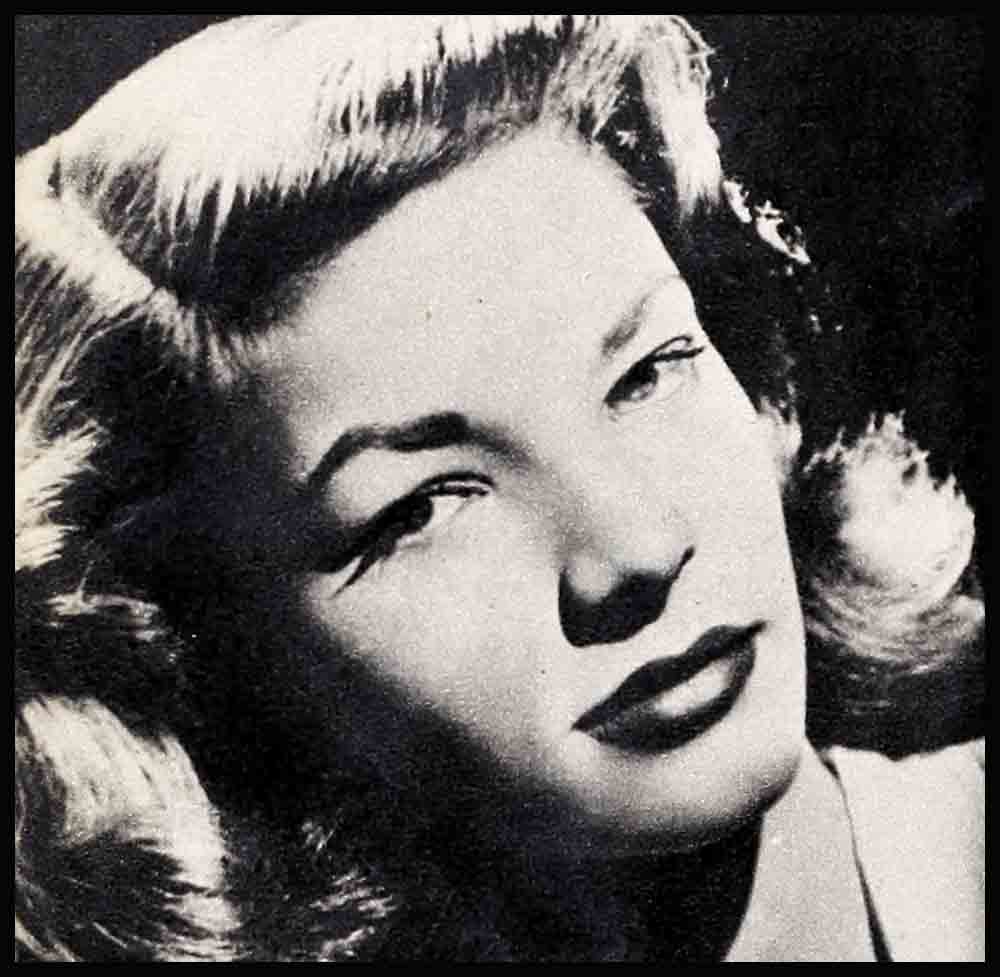
“My Nine Most Exciting Hollywood Moments”
“Hollywood must be an exciting place,” my friends always say wistfully.
“Why?” I asked one the other day. “Because,” she explained, surprised, “it is the home of beautiful women and handsome men . . . the greatest minds—the greatest musicians, writers, artists and couturiers—gather there . . . there is wealth . . . there are wonderful parties, sky-blue swimming pools, floodlighted premieres . . . Because, after all, it’s the dream city of the world, isn’t it?”
Hollywood is, undoubtedly, all this. During your first few weeks in that fabulous town all those things overwhelm you. Then slowly they become the background against which the really exciting things—the little human episodes—take place. For the longer I live the more convinced I become that the generosity, love, friendship, integrity, brotherhood, courage and incredible achievements of which the individual is capable are the most exciting things in the whole universe.
AUDIO BOOK
Speaking of incredible achievements, I hasten to tell you about Lauren Bacall . . . About a year ago when Lauren—completely unknown—had her eighteenth birthday I gave a little luncheon party for her. I invited Hedda Hopper, that astute columnist, the lovely Jean (Mrs. Charles) Feldman, Sir Charles Mendl, a great connoisseur of beauty, Felix Ferry from the Leland Hayward office (incidentally, Leland is the producer of Broadway’s “A Bell For Adano”), Terrence Phillip, another connoisseur of beauty visiting Hollywood at the time, and Carroll Carstairs, a charming art authority who has a gallery in Manhattan. all the gentlemen thought Lauren was divine. And both Jean Feldman and Hedda Hopper watched her, fascinated.
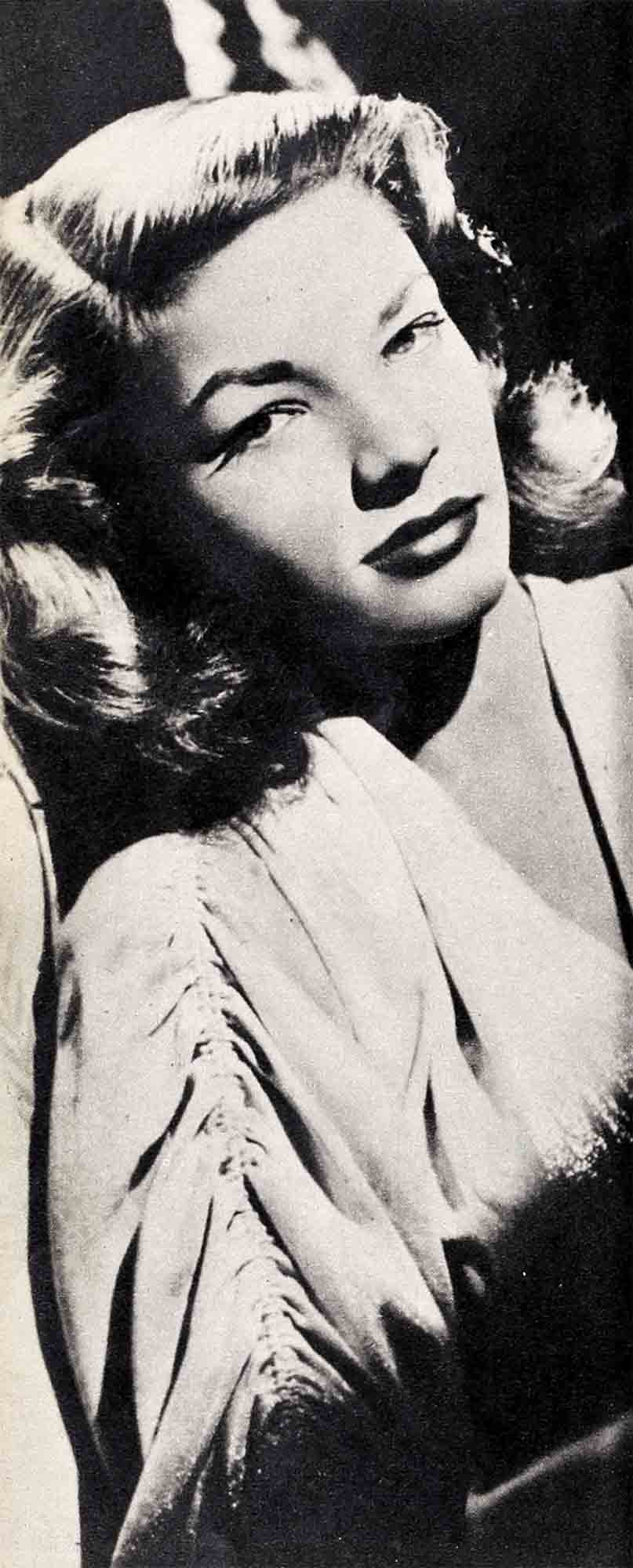
We had a happy time. Lauren cut her cake and was so sweet and appreciative for the little gold and jeweled brooch, not very elaborate or particularly expensive, which I gave her.
Hedda Hopper said to me that day, “You’re right, Elsa. She’ll have a great future out here—if she just won’t go in for ingenue stuff. . . .”
This surprised me, for Lauren isn’t remotely the way she looks on the screen. She’s collegiate in manner and appearance. And from the beginning she’s been as careful as all get-out of her conduct. She lives with her mother, drives her own car so the wolves get no opportunity to take her home, and she doesn’t stay out late or carouse.
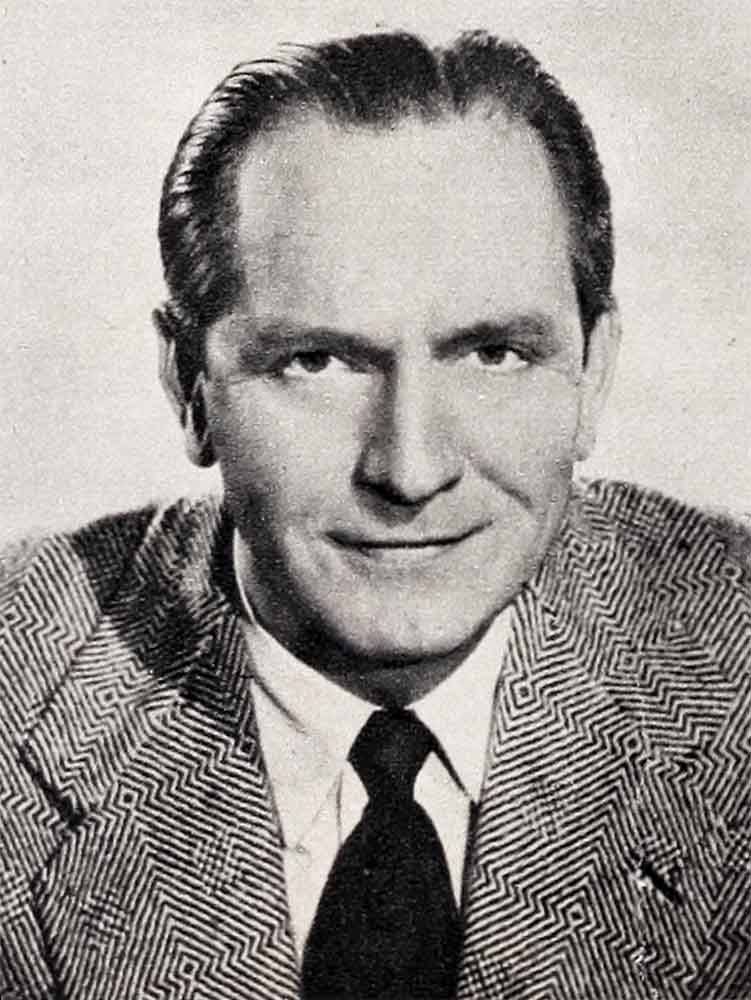
Nevertheless, I said, “tell Lauren how you feel, Hedda.” And Hedda did.
I feel sure Lauren, in tum, told Howard Hawks. Howard, you may be sure, would be quick to act upon any advice he valued. He’s Lauren’s Toscanini. He conducts her as meticulously and sensitively and masterfully as Toscanini does his orchestra. Which perhaps will explain to you how a young girl, not yet twenty-one, could appear on the screen for the-first time opposite that sophisticate of sophisticates, Humphrey Bogart, and give a performance that instantly had her being compared to Jean Harlow—a far cry indeed from the sweet ingenue for whom I gave my luncheon.
It’s a wonderful thing to have been in on the birth of a star and although I do not feel Lauren yet belongs up with the great of the screen, I think she’s likely to get there.
Next, I think of Judy Garland whose metamorphosis also is something in my book. Judy used to be a little thing who sang little songs like “The Moon Goes Round The Mountain” with Mickey Rooney. She was appealing in appearance and poignant in her singing. However, I never thought of her as any great human being and I doubt that she was any great human being then. She is now!
It was during this last election that I was conscious Judy had changed. From the sweet, poignant child she had been there emerged a fine little honest firebrand of a woman.
Many artists felt they should not take any political stand. One of our great women stars and one of our greatest comedians advised Judy to be less outspoken.
“But I believe in the President,” she told them. “Therefore, I must not only vote for him, I must fight for him too. . .”
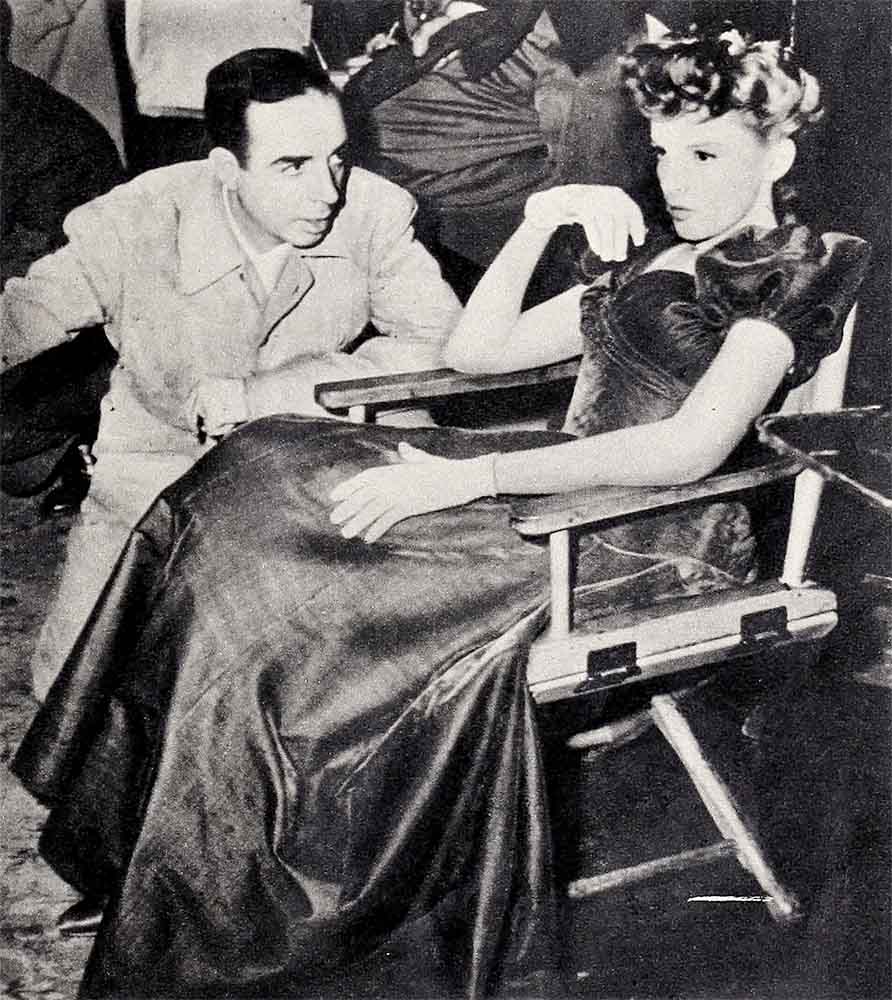
“Go slow!” the great woman star cautioned. “Many of our movie officials and many radio sponsors are opposed to the President, don’t forget. …”
Judy’s eyes blazed but her voice was contained as she asked “What’s the matter with us that we can’t say what we believe—like other people? I must, I’m afraid!”
Irrespective of what your politics may be, Judy was thrilling. I never shall forget her honesty, truth and intelligence.
Judy also is responsible for another of my Hollywood high lights. I saw her and Vincente Minelli fail in love. Never, I hope, will I grow so old that I will not respond to the beauty of those moments in which a man and a woman quite suddenly find each other. Never, I hope, will I forget that love is the greatest power on earth. Let the so-called realists argue that facts are the thing. I want to remember that facts, invariably, are born of emotions and dreams.
Vincente Minelli, who is a great artist and is coming rapidly into prominence since directing Judy’s picture, “Meet Me In St. Louis,” seems terribly in love with Judy. I can understand it. She’s so charming, such a darling and sweeter than ever, if possible, now, since Vincente has come into her life.
I think Judy daily becomes more devoted to Vincente too. Previously when she was admired by any man she seemed a little apart—with an elfin quality. With Vincente she is tender and gentle and several times I have spied them holding hands.
I first saw how the wind blew last December when I gave a luncheon party for Judy to which I invited Jack Wilson, the theatrical producer and another most attractive young gentleman, and Judy said to me, so shyly, “Oh, do ask Vincente too—please!”
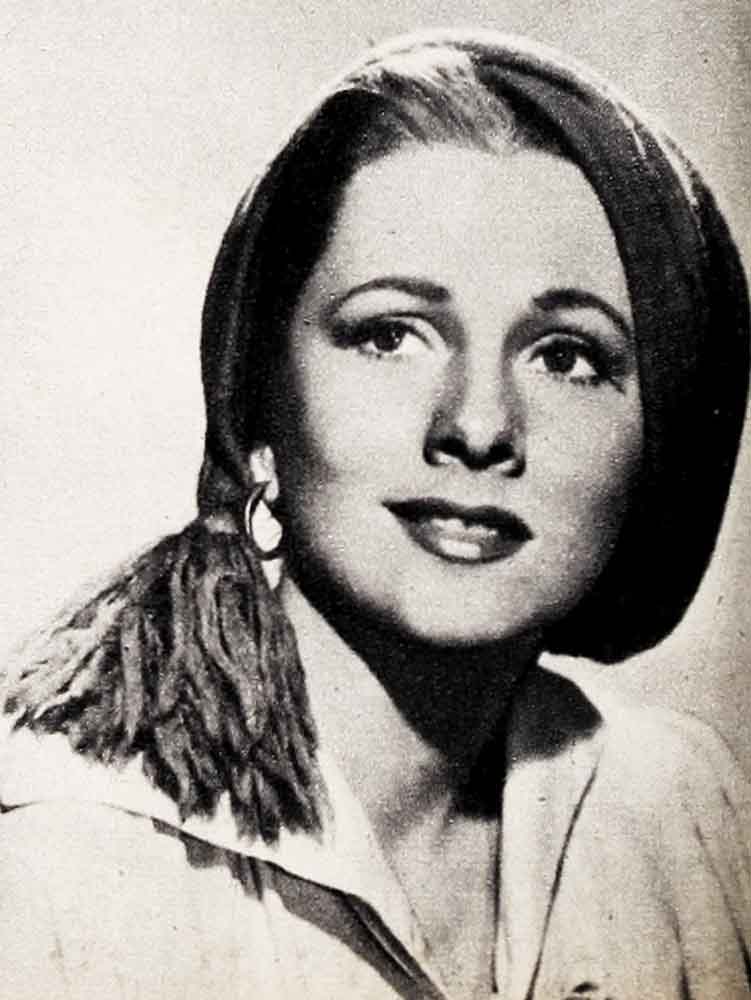
They are most becoming to each other, these two. They complement each other beautifully. I hope they will marry. If and when they do I shall be maid of honor. For there’s no one to whom I am more devoted than little Judy. The fact that she has taken a house at Santa Monica, on the beach, next door to Anita Loos, makes me think she and Vincente might very well be planning to set up housekeeping.
There you have three of my most exciting Hollywood moments. I have others. There’s the great producer who shall be nameless . . . There’s Joan Fontaine and John Houseman . . . There’s Fredric March . . . There’s Bing Crosby, or maybe I should say Samuel Goldwyn . . . There’s Lauren Bacall . . . Quite a list. I love lists. Years ago I invented the lists of the twelve best-dressed women, the twelve greatest gentlemen, the twelve greatest wits . . . Now we have, it seems, my nine most exciting Hollywood moments. . . .
The head of one of the biggest studios must remain anonymous. To name him would spoil everything. A little more than a year ago this man discovered that a woman, whom he admired because she works hard for the things in which she believes, was worried about money.
“She’s pretty hard up, isn’t she?” he asked a mutual friend, adding impatiently, “Why can t something be done for her?” The mutual friend laughed. “You don’t know her. She’s too darn proud to take anything from anyone.”
“Well,” said the head of the great studio, “supposing I send six hundred dollars a month to her bank account. She won’t know where it comes from and so, of course, she can’t refuse or return it.”
He has been doing just that ever since! Another thrilling thing which stemmed from Hollywood was when Colonel Darryl Zanuck spoke at the Nobel Prize Award Dinner at the Hotel Astor in New York where I was chairman of the reception committee. all the great of the earth were on the podium, many of them prize winners—inventors, engineers, physicists, heads of great universities and authors of rare distinction. But the speech made by my little blond-haired friend, Darryl, bowled them all over. He spoke for Hollywood. He spoke for Hollywood films, of their importance in the post-war world when they would undoubtedly be used to re-educate the Axis nations, starting with the children, against war and propaganda for peace. It was certainly a high light.
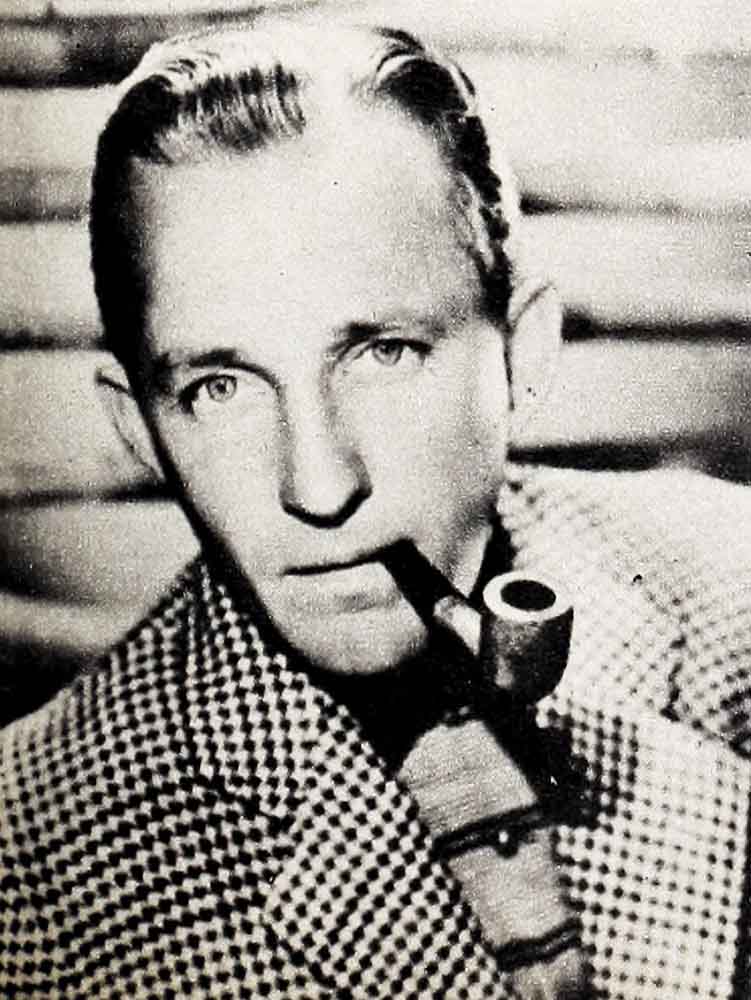
Friendship for friendship’s own sake always is wonderful to see. Which brings me to the friendship between Joan Fontaine and John Houseman. John is Joan’s accepted escort everywhere. She finds great comfort with him. Through his companionship she has matured charmingly.
It began when Joan was married to Brian, who is a delightful man but much older than Joan. He always treated her like a little girl. He was, actually, more like an older relative than like a husband or lover. Also, since Brian was not too socially inclined, he kept Joan hidden away, more or less, without any real men or women friends.
Well, one night Joan had to go to a public dinner for her studio. For some reason Brian couldn’t go. So the studio suggested that John Houseman, a very fine writer and philosopher, be her escort.
John, also older than Joan and quite serious, took Joan to dinner and as they talked he realized in some subconscious way that she was very lonely and in need of a friend. Whereupon he determined she should have the friend she needed and it would be he. There is nothing even remotely romantic between Joan and John. Her romantic interest lies elsewhere. Nor is their friendship for the purpose of covering her true romance or for publicity. It represents no gain beyond its own fine companionship.
Now and then you discover such a friendship in Hollywood and when you do you are overjoyed. Garbo enjoys such a friendship with Clifton Webb, who starred in “Laura.” Marlene Dietrich and Willis Goldbeck for years have been another such twosome. However, these friendships are rare. The stars who need friendship in the best and fullest sense of the word get very little of it.
If I am ever very rich I am going to have something without which the most simple and unostentatious star’s home would be incomplete—a full-sized projection machine and screen. Then I shall see—even as the stars do—all the good new movies right in my home.
You can have all the floodlighted Hollywood premieres, all the photographers, all the ermine, all the Little Shots without the ghost of a chance of their cars being allowed before the marquee until all the Big Shots’ cars have been filled and departed. Among my high spots I definitely list the pictures I’ve seen in Hollywood homes, with everyone smoking and leisurely sipping their after-dinner coffee.
Not long ago when Samuel Goldwyn gave a little dinner party for me I begged to see his latest picture, “The Princess And The Pirate.” Reluctantly, he consented. Sam feels that comedies show to better advantage with a large audience.
But surely I laughed enough to please Sam as “The Princess And The Pirate” unreeled. It’s a heavenly picture and I loved it. At the very end a young man suddenly appears on the screen. “Why don’t you sign that wonderful blue-eyed fellow?” I asked Sam. “He doesn’t talk in this picture but I’m sure he would speak well . . . He has personality. Take my word for it! Get him!”
The other guests shrieked with mirth. Sam groaned, “I show you two hours of my wonderful picture, Elsa Maxwell, and what do you do . . . You miss the big gag. I wish I could sign that handsome blue-eyed fellow. He happens to be Bing Crosby!”
Any moment in which I appear innocent and naive at my age is indeed a high spot!
Fredric March is giving me a great thrill these days, as Major Joppolo in the Broadway version of “A Bell For Adano.”
This war has changed Freddie. It set him thinking about important things, to spending his mental and physical energy in the beautiful speaking he has done for freedom and democracy and the more serious aspects of life. However, when this happened he couldn’t, it appeared, do those romantic lovers any more. So, of course, he found himself a bit out of the Hollywood groove.
When Freddie was cast as Major Joppolo in the theater’s “A Bell For Adano” there were many who shook their heads. “It is ridiculous to cast Freddie as Joppolo,” they said. “He isn’t young enough. And he doesn’t feel as that fellow did about things. . . .”
Freddie isn’t merely good as Joppolo. He’s as superb in it as he is happy about it. For “A Bell For Adano”—in line with Freddie’s new attitude for life—has a message as important as the mess we have made of our occupation of Italy and our need to do better in the other countries we free as time goes by.
In a long full life I can think of nothing which seems to me more amazing than Frank Sinatra. Not because of the hysterical worship the bobby socks give him, but because of his completely unegotistical reaction to it, believe me or not! And remember this devotion, almost overnight, turned Frank Sinatra from a poor nobody into a wealthy and famous man.
Before I met Frank I charged him, in my syndicated newspaper column, with aggravating our juvenile delinquency problem. Juvenile delinquency is something for which I work hard hoping in some small way to help our girls, America’s future mothers, to find their way again. In my column I blamed Sinatra for the neuro-romantic bobby socks who scream and yell and shriek as they hang around the stage doors.
Then I met him. Taking my hand in his two hands, he said, “Miss Maxwell, I want you to know I appreciate the truth of everything your column said. Also, that I appreciate why you said it. Not only do I agree with you, but my mother is on your side.”
“Frank,” I said, “you must have a wonderful mother.” Frank heartily concurred.
Incredulously I looked at the slight earnest young man, holding my hands in his. I thought I must not be hearing right when he went on, “Later I hope to be able to do something about all this. I hope to give lectures, to plead with the bobby socks and teensters to remain in school and listen to me on the radio when their homework is finished.”
We were in New York at the same time, not long ago. He called me on the telephone. “Elsa,” he said, for we have become great friends, “I’m leaving for California. I just wanted to say good-by and to tell you it won’t be long now before I’ll be off on that lecture tour. . . .”
His voice, overstrained because of all the singing he had done and all the campaign speeches he had made, was little more than a croak. Among other things, he was en route to the California desert where his physician had ordered him to rest.
“That lecture tour will cost you a lot of money, fellow,” I reminded him.
“That doesn’t matter at all,” he said. “I have money now. And the last thing I want to do is to be responsible—even partly responsible—for kids staying out of school. I would be mighty distressed, I can tell you, if my kids stayed out of school and hung around stage doors for any guy like me!”
Not only am I excited about my friend, Frankie, I’m proud of him. I knew from the minute I laid eyes on him that he was quite a guy. I’m even glad I jumped on him in the beginning. Otherwise I might never have known his measure as a man.
Hollywood certainly is exciting to me. And more and more I think of it as “Home Sweet Home.”
THE END
It is a quote. PHOTOPLAY MAGAZINE MARCH 1945
AUDIO BOOK




